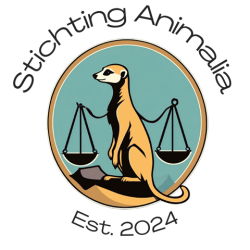Take action and make your voice heard!
Since 2023, the European Commission has been conducting a study on the potential introduction of an EU-wide positive list for pets. This list would determine which animal species may still be legally kept as pets within the European Union, based on the “no, unless” principle. Only species explicitly included on the list would be permitted; all others would, in principle, be banned.
While the goal – protecting animal welfare, public health, and biodiversity – is legitimate, national experiences have shown that the positive list as an instrument often falls short in practice. The Dutch “huis- en hobbydierenlijst” (home and hobby animals list) is a clear example of this. Poor scientific justification, opaque decision-making, and inconsistent policy have led to uncertainty, legal challenges, and public division.
In addition, an EU-wide positive list cannot be viewed in isolation from European law. The free movement of goods – including animals – is enshrined in Articles 28 and 29 of the Treaty on the Functioning of the European Union. Any restriction on that freedom must be demonstrably necessary, proportionate, and non-discriminatory. So far, there is no broadly accepted legal or scientific justification that meets these requirements. Alternatives such as education, husbandry regulations, or owner certification have hardly been considered, despite their potential to achieve the intended goals without sweeping prohibitions.
For animal keepers in Europe, this means they may soon face the prospect of being banned from keeping certain species – even under responsible and well-regulated conditions. This affects not only specialized breeders or traders, but also private individuals who care for their animals with dedication and responsibility.
The interim results of this study will be presented on 10 June 2025 during an online stakeholder roundtable. During this session, the preliminary findings will be discussed, organized around thematic sessions covering trade, animal welfare, biodiversity, and legal feasibility.
Stakeholders can register for participation via the RPA Europe website: https://www.rpa-europe.eu/positive-list-of-pets. Upon registration, connection details for the Webex session will be provided.
Stichting Animalia strongly stresses the importance of engagement. This online meeting offers a concrete opportunity for both the sector and individual keepers to provide input.
It is also worth noting that many relevant parties – such as breed associations, owners of non-conventional pets, sector organisations, and independent experts – have not been actively invited to participate in the survey phase of the study. This lack of transparency and inclusivity creates a real risk that the final outcome will be one-sided and incomplete. When key voices are structurally excluded, policy is quickly shaped by assumptions and perception rather than by a representative body of facts.
The decisions being made now will shape the future landscape for animal keepers across the EU.
Take action and make your voice heard!

